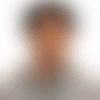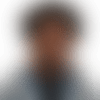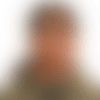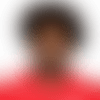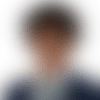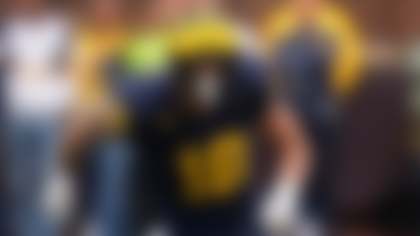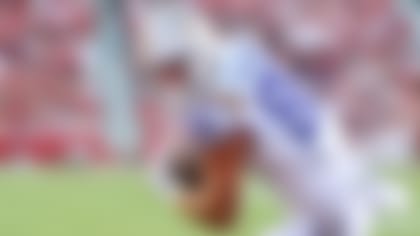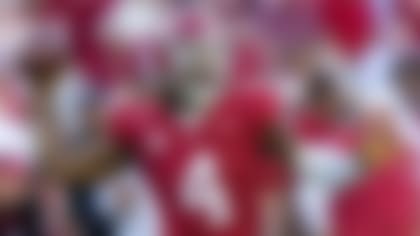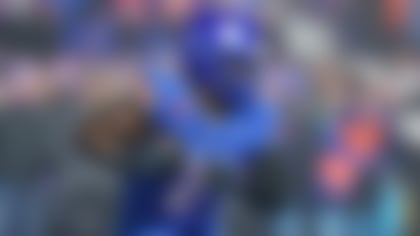I always do my ╣·▓·═Ō┴„═°mock drafts a little differently from the traditional method, in that my team-prospect pairings are based on optimizing for wins in the upcoming season only. A lot has changed since my first mock ran back in early February, with coaching staffs becoming finalized and free-agency moves providing more clarity on draft needs. A few things to keep in mind before diving into my Mock 2.0:
- I coded my model assuming the Packers trade Aaron Rodgers to the Jets sooner than later.
- I have no idea what will happen with Lamar Jackson's contract negotiation/trade request. So for the purpose of this exercise, he remains the Ravens' QB1 for 2023.
- Still no trades allowed.
NOTES:
- The ╣·▓·═Ō┴„═°announced in August that the Miami Dolphins will forfeit their 2023 first-round pick and 2024 third-round pick following an investigation into whether the team violated league policies pertaining to the integrity of the game.
In my models, Stroud has the highest floor of any QB in Year 1. Why? He has the sturdiest base, per computer vision. This means that his ability to throw, even when his platform isnŌĆÖt ideal (like when heŌĆÖs under pressure), forecasts to result in the fewest turnover-worthy plays. If Carolina is able to acquire another above-average or better WR (DeAndre Hopkins, maybe??) to pair with Stroud, Frank Reich would have an offense with a top-15 ceiling.
YoungŌĆÖs Alabama film rates him the best college QB in this class, per computer vision. There is some extra volatility in projecting him to the next level, though. When his feet are set and heŌĆÖs on platform, he ranks in the top 15 percent of my 10-season sample -- and he can get his feet set under duress. However, he had one of the longest times to throw while not under pressure last season (3.02 seconds, per PFF, ranking T-153rd). When you look into why, youŌĆÖll see he dropped back farther on average than the rest of the top passers in this class. Looking at QB comps from past drafts, passers who consistently had deep dropbacks have not fared well at the pro level unless their O-line -- specifically the tackles -- are able to hold off pressure well and recover when a rusher has a great second (or third) effort. Fortunately for Young, landing in Houston means he'll have the recently extended Laremy Tunsil protecting him for the foreseeable future.
I had the Cardinals selecting Tyree Wilson in my last mock, as Anderson had already come off the board. But with QBs likely going 1-2 on April 27 after the Panthers' trade, Arizona should have the chance at No. 3 overall to address a big positional need with my top-rated defender. AndersonŌĆÖs versatility and production (207 college pressures, per PFF) make him a great fit within Jonathan Gannon's defense, affording the new coach a foundational piece to begin his tenure in the desert.
My model tends to be conservative, so this pick surprised me a bit. Typically, my model wouldn't have a QB with relatively few career starts (Richardson) going ahead of a player with a similar overall rating and more starts (Will Levis). However, Richardson's fit with new coach Shane Steichen puts the Florida passer over the top. Steichen played a big part in transforming Jalen Hurts from a college star into a Super Bowl starter -- in part, by building off of Hurts' rushing ability. Combine Richardson's potential for a similar level of progression with Jonathan TaylorŌĆÖs prolific production and Richardson's ╣·▓·═Ō┴„═°learning curve becomes a bit smoother.
Wilson's value at this spot assumes he's healthy (foot) and contributing from the start of training camp as expected. Wilson netted 50 pressures last season, per PFF, and has improved in every computer vision forecasting method possible over the past three seasons. For people around his size (he's 6-foot-6, so I used 6-4 to 6-8 as the range in my 10-season sample) he ranks in the top 20 percent in speed after recovering from a block. ThatŌĆÖs a metric similar to the one I described earlier with Bryce Young, just from the defensive perspective.
Overall, Kancey is my 18th highest-rated prospect ŌĆ” and this is slot No. 6. ŌĆ” Are you picking up what IŌĆÖm putting down, Detroit? Maybe see if you can add an extra pick or two in a later round and still get this guy, Motor City Kitties. Keen free agency moves at the corner position makes addressing the interior of the defensive line the value play here. Kancey had a ridiculous ╣·▓·═Ō┴„═°Scouting Combine, and I was also able to watch his Pitt film with a few team execs to ask questions. Without being overly mathy, we looked at a few different ways of measuring his impact, and the one that stood out most to me was his lateral speed after traveling forward, which ranked in the top 5 percent of a 10-season sample. You know who might be great at understanding this value? GM Brad Holmes, who has experience with Aaron Donald from his Rams days. There are obvious connections there, but the main one is really valuing a prospect who is not a prototype.
Top-tier game-speed burst on passing downs and impressive run-stopping ability (both rank in the top 20th percentiles in my 10-season sample), as well as alignment versatility, combine to create the highest win-total increase for a non-QB in this first-round mock (0.81 games).
Fun fact: Levis threw the ball faster in 2022 than any quarterback in this draft class, per computer vision, topping 58 mph on a pass against Louisville in November.
Skoronski played LT at Northwestern, but some analysts project him as a guard at the pro level. My math suggests to build with Skoronski as a tackle and adjust accordingly to net the most wins.
Same pairing as I had in my first mock; however, note that the order of my edges has changed a bit as I've gotten a better sense of what type of skills teams were prioritizing during the free-agency process. The Eagles' depth along their defensive front is by design.
The Titans are overhauling their roster, and while I was a bit surprised that a wide receiver didnŌĆÖt pop up here, Smith makes sense because his presence along a revamped defensive front adds the most immediate value.
Murphy has top-eight value when factoring in his fit within DeMeco Ryans' defense. Houston gets him at No. 12 overall, wrapping up the round with a three-down defender and a new franchise QB.
Aaron Rodgers was under pressure more than twice as often last year than he had been in the previous two seasons, per computer vision. While I am hopeful Mekhi Becton is healthy and able to line up at tackle, the former first-round pick has played just 48 snaps in two seasons. This win-now roster benefits most in the short term by building in the trenches. The 6-6, 310-pound former Buckeye didn't give up even one sack on 449 pass-rush blocks and allowed just 14 pressures in 2022, per PFF.
ItŌĆÖs highly unlikely Witherspoon lasts until No. 14 overall, but if he's still on the board, the Pats jump at the opportunity to team my top-rated CB with Jonathan Jones and Jack Jones. Witherspoon ranks first for me in zone and man-heavy schemes; in other words, heŌĆÖs the least system-dependent corner in this class, per my projections.
My model loves reliable route runners who are above a specific speed threshold (can travel 10 yards in 2.5 seconds or less when pressed, or 2.1 seconds when not pressed during a game). Smith-Njigba is the latest Buckeye to fit this mold -- just watch his 2021 tape. (Alabama also has a knack for churning out these kinds of receivers.) I can hear you already: But the Packers don't draft receivers in the first round. Well ... maybe they should?
Sticking with Gonzalez here. His skill set should help a secondary that needs to increase its turnover production.
My models rank last seasonŌĆÖs O-line 26th in the league, and Jones forecasts as an impact left tackle from Day 1. The former Bulldog's presence should especially be felt in the pass game, where the Steelers ranked 26th in passing yards per play last season (5.97 yards).
The Lions have a strong O-line (forecasts to be in the top echelon) already, so KincaidŌĆÖs value is really about his pass-catching prowess. He was highly productive last year (70 catches for 890 yards), showcasing real ability after the catch.
Offensive line has to be a priority after some key departures. Harrison played LT at Oklahoma and allowed only one knock down (sack/hit) on 425 pass pro snaps last season, per PFF.
My models are higher on Addison than you might see in other mocks. But as I mentioned earlier, I like measured route runners who run above a certain speed threshold -- Addison checks those boxes. Pairing him with the likes of Tyler Lockett and DK Metcalf should open up space for him to operate and limit the number of contested catches he's forced to make (an area CV flags as a potential transition problem at the next level).
Mayer profiles as a complete TE who excels both as a blocker and pass catcher. With the uncertainty surrounding Austin Ekeler, I could see the Chargers targeting Bijan Robinson here. But assuming Ekeler stays put, Mayer helps the team the most in 2023.
Johnston edged out the available corners by a slim margin. Whoever's lining up under center for Baltimore (I'm assuming it'll still be Lamar Jackson) will appreciate Johnston's size (6-3, 208) and 8.9 yards after the catch per reception (tied 10th, per PFF).
Porter edged out the remaining receivers here by the slimmest win-share margin. The Vikings need to shore up their pass defense, and Porter proved last season (allowed just 143 yards in 10 games) he can be a difference-maker in the back end.
Probably my biggest riser from Mock 1.0 to Mock 2.0 and not just because he had a monster combine. Banks is a taller corner at 6-foot-2 and has lateral speed that falls into the top 20th percentile of my 10-season sample. Usually shorter corners fall into this category. Further, his improvement season over season suggests heŌĆÖs nowhere near his peak.
Corner or WR? WR or corner? ThatŌĆÖs what these past few picks have been all about. I'm sticking with Flowers as the Giants' pick, with the receiver just edging out the remaining corners.
IŌĆÖm going to pretend the Cowboys read my first mock and my restructure or release article and took my advice. ŌĆ” Robinson is a special back, with the speed, power and elusiveness to manufacture yards (104 forced missed tackles in 2022, per PFF).
I am aware that the Bills have a strong defensive back group. I am also aware of needs at other positions. I am also, also aware that Leslie Frazier is taking the season off and Buffalo's defense might not look the same with Sean McDermott calling the plays. However, this is a team that used at least five defensive backs on more than 90 percent of plays last season, enduring a lot of injuries. Cam Smith at Pick 27 would be a nice upside selection. His change of direction speed ranked in the top 10 percent of FBS players, which helps contextualize his 15 pass breakups and four interceptions off just 70 targets. Note: There are good RB options (and many at a favorable price) in the marketplace.
Wright is a Day 1 right tackle whose addition would allow Cincinnati to move on from Jonah Williams, leading to more draft capital in the process. Wins all around. Also, if someone in the Bengals front office is reading this ŌĆ” please sign Joe Burrow right now. It's only going to get more expensive.
Ojulari gets a big boost in his first season trajectory working with Cameron Jordan. His versatility against both the run and pass creates the most immediate upside for the Saints. ItŌĆÖs also funny to me that his comp is his brother. (I do all comps blind, so you can imagine my nerdy delight when things like that happen.) In the past two seasons at LSU (including postseason play), he totaled more than 100 pressures and 17 sacks, per PFF.
DonŌĆÖt let his 40 time fool you, Branch would be a great add for a team with very few holes to fill. First, while Branch played in the slot most often at Alabama, my math rates him as versatile and not relegated to just that spot. HeŌĆÖs also a reliable tackler whose upside could be realized in Philly's system.
Bryan Bresee, Will McDonald and Adetomiwa Adebawore all flag as valuable picks here, too, but Anudike-Uzomah slightly edges them all out. Oh the puns. The former Wildcat ranked eighth in the FBS last year in pass-rush win rate on true pass sets (34%) and seventh in pressure rate (28%), per PFF.
Follow on Twitter.




